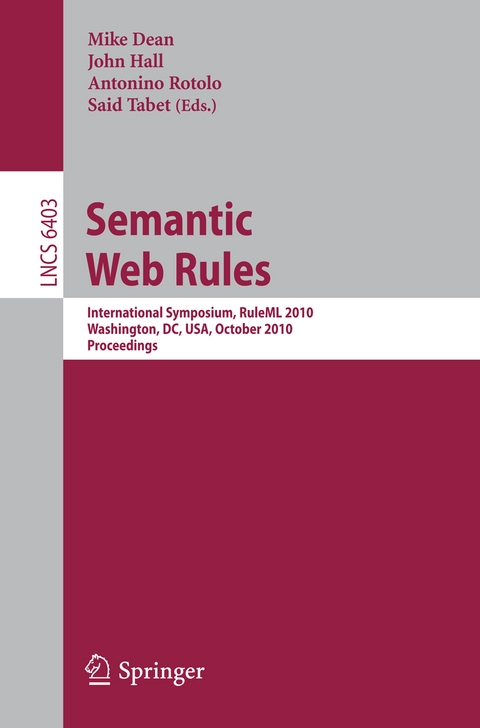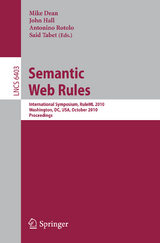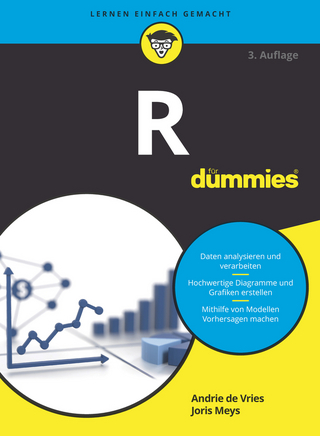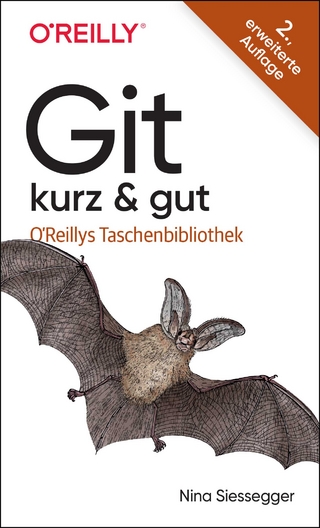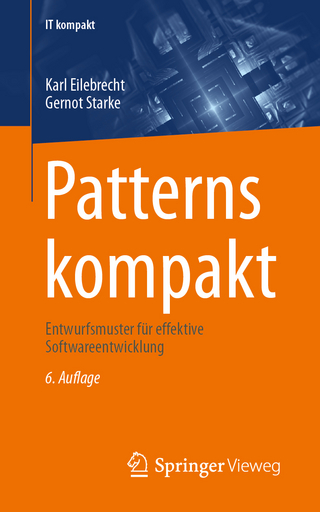Semantic Web Rules
Springer Berlin (Verlag)
978-3-642-16288-6 (ISBN)
Antonino Rotolo is Associate Professor of Philosophy of Law at the University of Bologna Law School (Italy). He has also extensively written on formal methods for practical and legal reasoning, logics for artificial intelligence, artificial intelligence and law, and philosophical logic. He served as a reviewer for many international journals and as a member of the programme committee of international conferences and workshops.
Keynotes and Invited Demos.- Logical Spreadsheets.- NIEM Canonical XML Dictionaries and Rule Engine Systems.- Implementing SBVR with a Practitioner's Perspective.- Rules and Uncertainty.- A Practical Management of Fuzzy Truth-Degrees Using FLOPER.- A Rule-Based Implementation of Fuzzy Tableau Reasoning.- Rule-Based Event Processing and Reaction Rules.- Ensuring Compliance with Semantic Constraints in Process Adaptation with Rule-Based Event Processing.- Establishing a Procedure Model for Combining and Synergistically Aligning Business Rules and Processes within Ontologies.- Rules and Inferencing.- Rule-Based Contextual Reasoning in Ambient Intelligence.- Enhancing a Smart Space with Answer Set Programming.- Superiority Based Revision of Defeasible Theories.- On the Problem of Computing Ambiguity Propagation and Well-Founded Semantics in Defeasible Logic.- Rule Transformation and Extraction.- Generating SQL Queries from SBVR Rules.- Representing Financial Reports on the Semantic Web:.- Transformation of SBVR Compliant Business Rules to Executable FCL Rules.- Rules, Semantic Technology, and Cross-Industry Standards.- RuleML 1.0: The Overarching Specification of Web Rules.- Rules and Norms.- Defining Access Control Rules with Conditions.- Norm Compliance in Business Process Modeling.- Application of an Ontology-Based and Rule-Based Model to Selected Economic Crimes: Fraudulent Disbursement and Money Laundering.- Rule-Based Distributed/Multi-Agent Systems.- A Contract Agreement Policy-Based Workflow Methodology for Agents Interacting in the Semantic Web.- Photorealistic Semantic Web Service Groundings: Unifying RESTful and XML-RPC Groundings Using Rules, with an Application to Flickr.- Towards the Web of Models: A Rule-Driven RESTful Architecture for Distributed Systems.-Miscellaneous Rule Topics.- Visualizing Logical Dependencies in SWRL Rule Bases.- An XML Format for Association Rule Models Based on the GUHA Method.- Realizing Integrated Service Delivery through a Language for Collective Understanding of Business Rules.- Authoring Business Rules Grounded in OWL Ontologies.
| Erscheint lt. Verlag | 6.10.2010 |
|---|---|
| Reihe/Serie | Lecture Notes in Computer Science | Programming and Software Engineering |
| Zusatzinfo | XIII, 305 p. 66 illus. |
| Verlagsort | Berlin |
| Sprache | englisch |
| Themenwelt | Mathematik / Informatik ► Informatik ► Software Entwicklung |
| Schlagworte | business processes modeling • concurrency control • Distributed Systems • E-Contracting • fixatdl • FpML • HL7 • MISMO • Multi-agent Systems • natural language • Non-monotonic Reasoning • Rule-Based Reasoning • Rule Extraction • rule transformation • semantic agents • semantic web • structured analysis • Uncertainty • XBRL |
| ISBN-10 | 3-642-16288-6 / 3642162886 |
| ISBN-13 | 978-3-642-16288-6 / 9783642162886 |
| Zustand | Neuware |
| Haben Sie eine Frage zum Produkt? |
aus dem Bereich
